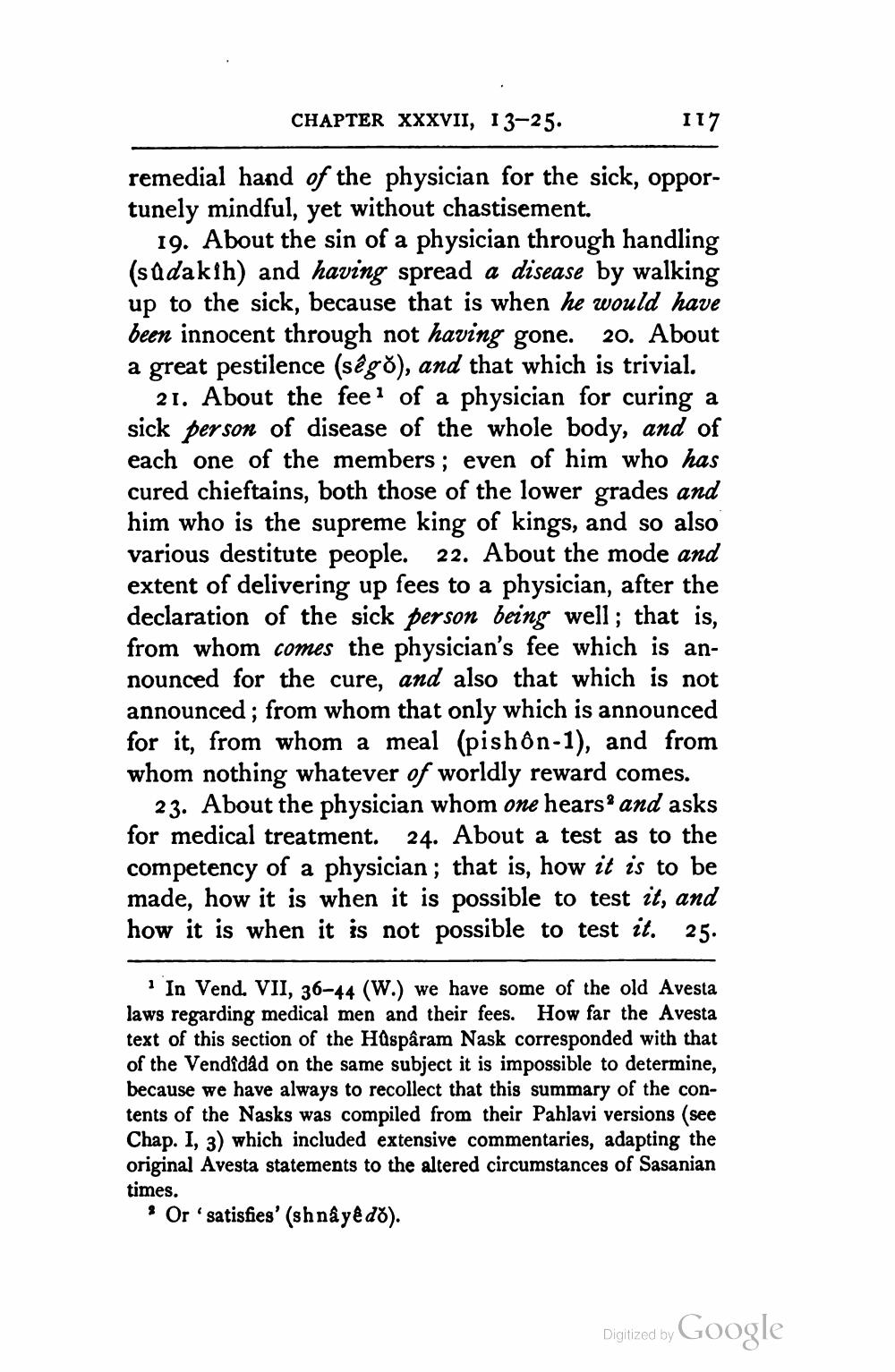________________
CHAPTER XXXVII, 13–25.
117
remedial hand of the physician for the sick, opportunely mindful, yet without chastisement.
19. About the sin of a physician through handling (sadakih) and having spread a disease by walking up to the sick, because that is when he would have been innocent through not having gone. 20. About a great pestilence (sêgo), and that which is trivial.
21. About the feel of a physician for curing a sick person of disease of the whole body, and of each one of the members; even of him who has cured chieftains, both those of the lower grades and him who is the supreme king of kings, and so also various destitute people. 22. About the mode and extent of delivering up fees to a physician, after the declaration of the sick person being well; that is, from whom comes the physician's fee which is announced for the cure, and also that which is not announced; from whom that only which is announced for it, from whom a meal (pishôn-1), and from whom nothing whatever of worldly reward comes.
23. About the physician whom one hears and asks for medical treatment. 24. About a test as to the competency of a physician; that is, how it is to be made, how it is when it is possible to test it, and how it is when it is not possible to test it. 25.
In Vend. VII, 36-44 (W.) we have some of the old Avesta laws regarding medical men and their fees. How far the Avesta text of this section of the HQspâram Nask corresponded with that of the Vendidad on the same subject it is impossible to determine, because we have always to recollect that this summary of the contents of the Nasks was compiled from their Pahlavi versions (see Chap. I, 3) which included extensive commentaries, adapting the original Avesta statements to the altered circumstances of Sasanian times.
* Orsatisfies' (sh nàyê dd).
Digitized by Google




